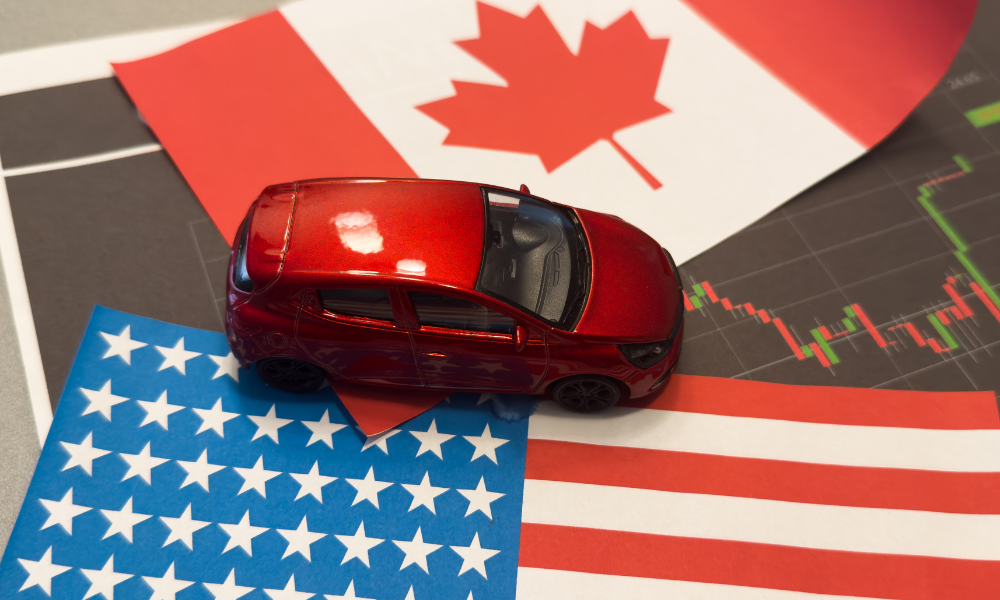Experts highlight potential job losses

US president Donald Trump’s revised tariff plan is raising concerns among auto analysts, suppliers, and Unifor officials, who warn it poses a greater threat to the Canadian auto industry than his initial proposals.
Trump’s executive order, signed Tuesday, offers domestic automakers a 15% tariff break on imported parts used in US-built vehicles and relief from the 25% tariff on imported steel and aluminum.
Sam Fiorani, vice president of global vehicle forecasting at Auto Forecast Solutions, told the Windsor Star “jobs in Canada and Mexico are at risk with this plan.” He argued that the US auto industry, even after Trump’s tenure, will be less competitive globally, negatively impacting jobs in Canada and Mexico. Fiorani also predicted that relocating supply chains to the US will drive up car prices, reduce vehicle selection, and decrease production volumes. “The industry will absolutely become smaller,” he cautioned.
Unifor national president Lana Payne condemned the plan as “a temporary and convoluted tariff offset scheme designed to shield US plants while continuing to treat Canada as a trade enemy.” She described it as an attempt to deliver “a crushing blow” to Canada’s interconnected supply chain.
Jonathon Azzopardi, president of Laval International, expressed a similar sentiment, stating that the tariff reductions provide companies with a timeline to relocate supply chains to the US. “In my opinion, this is worse,” he said. “He’s (Trump) got a systematic approach for removing plants from Canada that could work.” Azzopardi urged the federal government to immediately commence negotiations for a new trade agreement with the US.
Trump’s plan allows automakers to claim reimbursements on imported parts worth up to 15% of a US-built vehicle’s value, with those reimbursements gradually decreasing over two years. The plan excludes Canadian components complying with CUSMA origin rules in US-built vehicles but maintains 25% tariffs on Canadian parts in Canadian-assembled vehicles.
Payne criticized the “partial tariff patchwork” as “reckless,” emphasizing the seamless cross-border trade that underpins the Canadian and US auto industry. She stressed that any disruption destabilizes the industry, strains manufacturers, and results in job losses. Payne concluded, “If automakers want to sell vehicles in Canada, they must be required to build here too.”
What can Canada do to protect its auto sector? Share your insights in the comments below.



